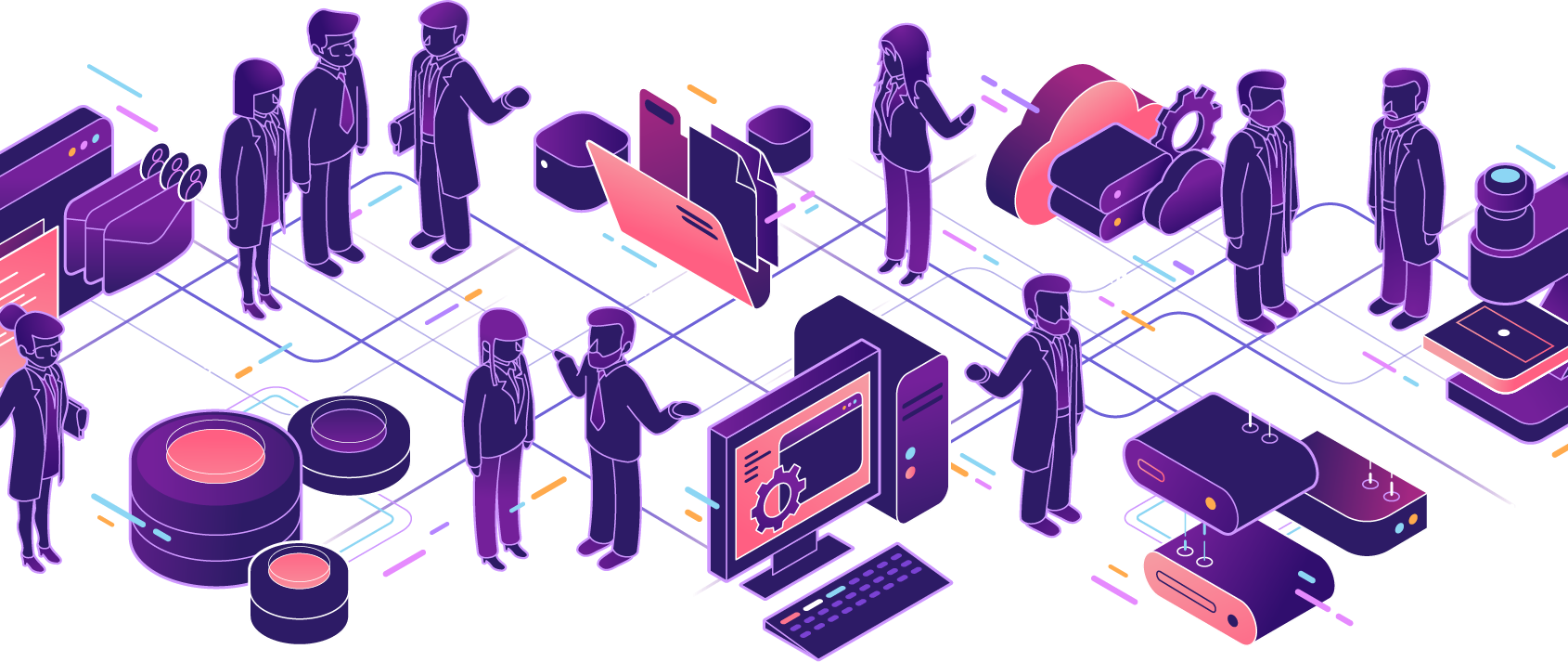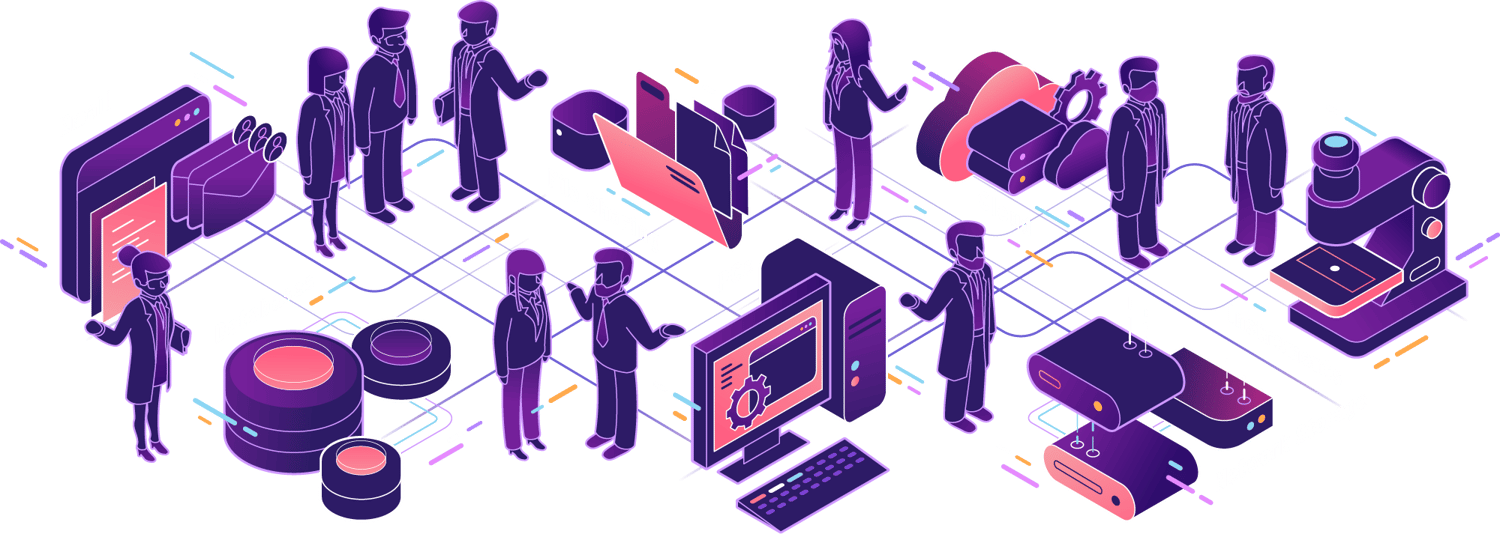The Challenge
What causes
data chaos?
And how do we fix it?
Life sciences organizations face unique data challenges that grow more complex every day. Understanding these challenges is the first step toward creating sustainable solutions.
Massive Data
Life sciences organizations collect more data than any other industry in the world, searching for groundbreaking therapeutics to solve some of humanities most pressing challenges.
+
Lots of Experiments
Life sciences organizations collect more data than any other industry in the world, searching for groundbreaking therapeutics to solve some of humanities most pressing challenges.
+
Many Data Types
Life sciences organizations collect more data than any other industry in the world, searching for groundbreaking therapeutics to solve some of humanities most pressing challenges.
MOST ORGANIZATIONS WIND UP WITH
Data CHAOS


And its no ones fault.
Each team and each team member, needs flexibility to move fast. So they adopt their own tools, practices and conventions. Data ends up in Dropbox, Google Drive, Box or Sharepoint. Other data ends up in AWS or Google Cloud, Benchling or Egnyte, and no one knows where everyone else’s data lives.
Bench scientists may want to store data in their ELN, Business Users want to store data in Sharepoint, and computational biologists may want to store data in Amazon S3. Each team has chosen their platform based on their requirements, and reasonably.
Each of these decisions is a reaction to an immediate need.But, every day this continues, the sprawl becomes greater, and it’s harder to fully utilize that data.
Bench scientists may want to store data in their ELN, Business Users want to store data in Sharepoint, and computational biologists may want to store data in Amazon S3. Each team has chosen their platform based on their requirements, and reasonably.
Each of these decisions is a reaction to an immediate need.But, every day this continues, the sprawl becomes greater, and it’s harder to fully utilize that data.
But chaos is unsustainable
While organizations might, at first, benefit from giving each team the flexibility to choose where and how to store data, over time it deeply impacts the organization’s ability to function. When it comes time to govern data, to replicate results, to trace data provenance and lineage, to find all of the organization’s data produced by a certain instrument, or associated with a particular project, this sprawl becomes a heavy burden.
Tame Data Chaos with Packages
Data packages give organizations the flexibility for each team to work with their data platforms their own way. Packages give teams the ability to reign in data sprawl, and tame data chaos while keeping velocity high.